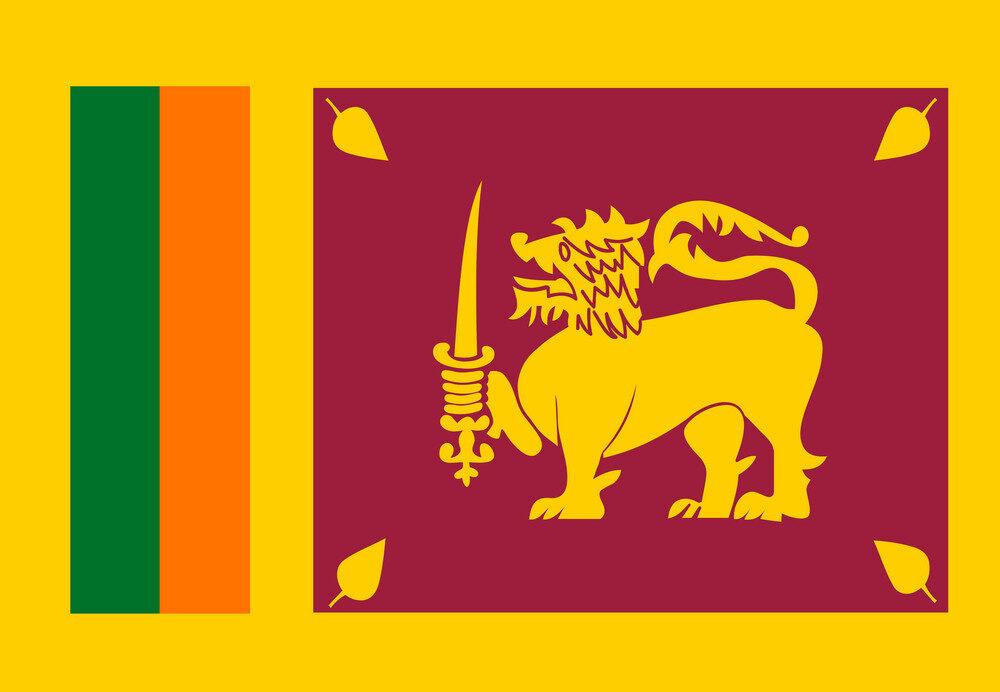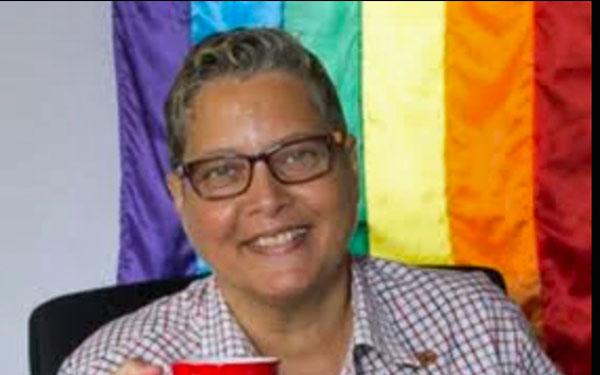U.N. panel’s ruling on Sri Lanka encourages lesbian activists worldwide
Colin Stewart is a 45-year journalism veteran living in Southern…
Sri Lanka‘s law against same-sex sexual activity is a human rights violation, the UN Committee on the Elimination of Discrimination against Women (CEDAW) declared this week. The ruling in favor of Sri Lankan activist Rosanna Flamer-Caldera encourages, but does not force Sri Lanka to change its anti-LGBT law. Worldwide, the ruling gives moral support to activists in many nations who seek to overturn their own countries’ similar laws.

“This landmark decision by CEDAW will remain one of the most historical judgments to be made by the UN in modern times. This will inspire many women in Africa and beyond who are at the forefront of fighting for women’s rights to step up and bring human rights violations against women to book.” said Nate Brown, the Executive Director of Pan Africa ILGA.
Pan Africa ILGA has over the years taken note of State Sponsored Homophobia Reports by partners such as ILGA World and Human Rights Watch that have documented and analysed similar scenarios in countries such as Senegal, Ghana, Zimbabwe, Namibia, Zambia and more. Such reports have shown how these attacks attempt to create an environment of intolerance in which governments want to eliminate the basic principles of human rights, allowing individuals to abuse others with impunity.
“I want all lesbian, bisexual, queer and gender diverse groups across Africa and beyond to be inspired by this historic shift. Many countries in low developing countries criminalise same sex relationships which has in most cases, led to discrimination and sometimes death of sexual minority groups. Let this decision be a reminder that the world agrees to non-discrimination.” said Nate Brown.
Ms. Flamer-Caldera like very many advocates within the lesbian, gay, bisexual, transgender and intersex communities across Africa, have been subjected to torture over the years. This moment in time remains one of the key avenues we can use to put our governments in check since most ratified the UN Convention on the Elimination of All Forms of Discrimination against Women” Star Rugori, the Pan Africa ILGA Board Co-Chair mentioned.
“Like many LGBTIQ+ advocates and activists around the world, I enthusiastically welcome this decision. Criminalisation of same-sex relationships is barbaric and has no place in the modern world. We should be moving towards eliminating all forms of discrimination against vulnerable communities including women.” Barbra Wangare, the PAI Board Co-Chair also added.
The judgment … concerned Sri Lanka’s Penal Code, a relic of British colonial rule that dates to 1883. Section 365 punishes “carnal intercourse against the order of nature” with up to 10 years in prison and a fine. Section 365A punishes “any act of gross indecency” with up to two years in prison and a fine.
These provisions are widely understood to criminalize consensual sex between same-sex partners. Section 365A originally criminalized same-sex relations between men; however, the provision was amended in 1995 after the law was criticized for being discriminatory on the basis of sex, to include same-sex relations between women.
Many countries only criminalize same-sex relations between men, and at least 38 countries criminalize same-sex conduct regardless of sex or expressly criminalize sexual conduct between women. At least 10 countries have, since 1986, explicitly enacted laws that criminalize sex between women as well as men, sometimes perversely framing this as a gesture toward equality – such as in the case of Sri Lanka.
Around the world, laws that criminalize same-sex relations are being repealed as courts and governments recognize they are discriminatory and harmful – including the Indian Supreme Court striking down penal code section 377 in 2018. …
With this call for change from the CEDAW committee, Sri Lanka should urgently repeal its outdated and discriminatory law.
CEDAW issued this press release:
Sri Lanka: Criminalisation of same-sex sexual activity breached rights of a LGBTI activist, UN women’s rights committee finds
GENEVA (23 March 2022) – Sri Lanka violated the rights of a lesbian and leading LGBTI activist who was subjected to discrimination, threats and abuses due to the country’s Penal Code that criminalises same-sex sexual activity, the UN Committee on the Elimination of Discrimination against Women (CEDAW) has found.

In its decision published today, CEDAW found that Sri Lanka has breached the rights of Rosanna Flamer-Caldera, the founder and Executive Director of Equal Ground, an organisation defending the rights of the lesbian, gay, bisexual, transgender and intersex community in Sri Lanka.
Flamer-Caldera has been supporting lesbian and bisexual women in defending their rights after discovering in 1997 that the country’s Penal Code, which criminalises same-sex sexual activity, had been amended to include also sexual conduct between women. Since then, Flamer-Caldera has suffered high-profile attacks on her character, and she and her organisation have been subjected to discrimination, harassment, stigmatization and threats of violence by State officials and members of the public, including the press and social media.
In 2012 and 2013, the Women and Children’s Bureau of the Sri Lanka Police used Flamer-Caldera’s photo and her position with Equal Ground in presentations to assert that the rise of child abuse was mainly due to the “growing homosexual culture”. They claimed that she and her organization were responsible for “spreading” homosexuality, implying that they were also responsible for “spreading” paedophilia.
Despite facing harassment and stigmatization, Flamer-Caldera did not complain to the police as she was worried she would be arrested. As a result of the amended Penal Code, she has been under constant risk of arrest, detention and investigation of her private life and has had to modify her behaviour.
Flamer-Caldera brought her case to the Committee and claimed that the criminalization of female same-sex sexual activity and the concomitant potential for arrest and prosecution amount to discrimination on the grounds of gender and sexual orientation, violating her right to non-discrimination.
“Ms. Flamer-Caldera has been frequently threatened and harassed by the police, the media and the public, but she has been unable to report these abuses out of fear of being arrested,” said Committee member Hiroko Akizuki.
“The criminalization of same-sex sexual activity has meant that the discrimination, violence and harassment on the lesbian, gay, bisexual, transgender and intersex community in Sri Lanka will continue with impunity,” she added.
CEDAW found that the Sri Lankan authorities have subjected Flamer-Caldera to gender-based discrimination and violence.
It found that the Sri Lankan authorities had not taken any legal or other measures to respect and protect Flamer-Caldera’s right to a life free from gender-based violence or to eliminate the prejudices to which she has been exposed as a woman, lesbian and activist.
It also found that the authorities have breached her right to access to justice to complain of the abuses and her right to non-discrimination concerning her family relations.
The Committee urged Sri Lanka to decriminalise same-sex sexual conduct. It also requested that the State take immediate and effective action to stop the threats, harassment and abuse, which Flamer-Caldera has been subjected to, and to take criminal procedures to hold those responsible to account.
Background: The Committee on the Elimination of Discrimination against Women monitors States parties’ adherence to the Convention on the Elimination of All Forms of Discrimination against Women, which to date has 189 States parties. The Committee is made up of 23 members who are independent human rights experts in women’s rights drawn from around the world, who serve in their personal capacity and not as representatives of States parties. The Optional Protocol to the Convention on the Elimination of All Forms of Discrimination against Women allows the Committee to receive and examine complaints by individuals or groups of individuals under the jurisdiction a State party to the Optional Protocol, claiming to be victims of a violation of any of the rights set forth in the Convention. To date, 114 States have ratified or acceded to the Optional Protocol. The Committee’s views and decisions on individual communications are an independent assessment of States’ compliance with their human rights obligations under the Convention.
Learn more with our videos on the Treaty Bodies system and on CEDAW Follow the UN Treaty Bodies on social media! We are on Twitter @UNTreatyBodies




Gay Nigerian student needs help in fight against trumped-up charge